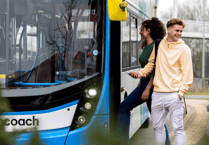DEVON & Cornwall Police have launched a pilot aimed at improving the way blue light services support people living with neurodiversity when attending emergency incidents.
The pilot involves the use of green wristbands, known as ‘neurodiversity IDs’ (NDIDs), that can be worn by individuals who are neurodivergent.
When scanned by emergency services, it provides vital information about the person so that responders on scene can give them the right help at the time.
Working alongside the neurodivergent community to support with the creation of the wristbands, it been designed to share details of a person’s neurodivergence, how an individual communicates best, any medical needs they may have and emergency contact details for their next of kin.
The aim is that the NDIDs will support improved interactions and communication between police officers, other emergency services and the wearer.
‘We know that emergency situations can sometimes be overwhelming,’ said PC John Holland, who supported with the launch of the trial alongside PC Dudley Rowe.
‘The wristbands are about putting the person at the centre of our response so we can make sure our communication and care is appropriate from the very first moment.
‘The information that they provide will give us the tools we need to make sure our officers handle incidents in the most effective way possible’.
PC Holland added: ‘We know that we haven’t always got it right in the past, but these wristbands offer an opportunity for us to continue to progress and improve the service we provide to our neurodiverse community’.
The bands use nearfield communication technology (NFC) chips and can be scanned by first responders, caregivers and community members.
Pilot leads within the Cornwall area are working with local policing teams and partners to identify those able to take part in the pilot.
If the pilot is successful, the Force hopes the project will be rolled out across Devon and Cornwall.




Comments
This article has no comments yet. Be the first to leave a comment.